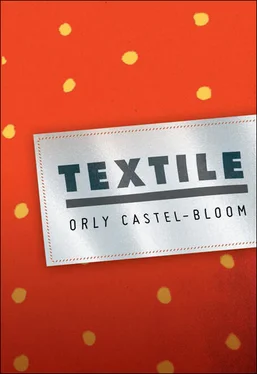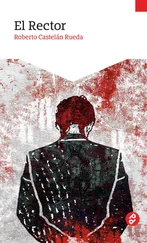The man’s name was Bill Stanton. A healthy instinct led her to the conclusion that Gruber should on no account be seen by a female psychiatrist. Stanton said that he would drop in on his way to work. No, he didn’t take money for the first consultation, only for the second. She asked if a home visit had to be paid for anyway, and he said that in this case too he only took money for the second visit. This was his conception, he said and laughed, he believed that it was enough for a person to have to see a psychiatrist, he didn’t have to pay for it as well.
But McPhee was suspicious of this argument because she had heard of the new community founded by one thousand of the twenty thousand whites (20,893 white citizens, who constituted 71.3 percent of the population of the town). Anyone in Ithaca could be a member of the new community, even if he was one of the 460 Puerto Ricans in the town, or one of the 125 Vietnamese. Whether he was man over eighteen of any race and color (13,433), or a woman over eighteen of any race and color (13,149).
This community had set itself the goal of increasing the goodness inherent in all human beings, of all sectors and genders, and it was called the Goodwill Community. All the members happened to be whites who lived on the outskirts of the town and provided themselves with all the services they required not for money, but through a system of barter. And as for the rest of the inhabitants of Ithaca, whether they belonged to the 1,555 Hispanics (or Latino-Americans, according to the accepted usage of the day), or the 1,965 Afro-Americans, or Chinese by origin (1,659), or of any other race (356), they were all entitled to significant reductions. They enjoyed the services of the Goodwill Community for a symbolic fee, which was itself donated to charity.
The fact that Dr. Bill Stanton turned out to be a member of the Goodwill Community bothered Bahat, because she was afraid she would hesitate to ask him for all kinds of extras on his home visit.
McPhee wasn’t prepared for charitable freebies. She wanted an accurate diagnosis, but at the same time as comprehensive as possible.
DR. BILL STANTON arrived the same day. He spoke to Gruber in his room for a long time, and afterward he came out to Bahat, who was waiting in suspense in the hallway.
He told her that he was hesitating between a diagnosis of recurrent major depression with symptoms of compulsive behavior (including the symptom of his falling in love with her), and post-traumatic stress disorder, in which case his depression, and all his bizarre behavior, including the falling in love, were only a side effect of the disorder.
He had no doubt that Gruber was a borderline case, and in view of his other doubts regarding the diagnosis, he asked for permission to use the telephone in order to consult a colleague, since the medication for the two conditions was different.
“Medication?” asked Bahat.
“Yes.”
He spoke for about five minutes on the phone and then he explained:
“We try one kind of medication, and if it works, we continue, and if it doesn’t, it’s a sign that it’s the second possibility, and in this way we arrive at the right medication, in the hope that it is indeed right. In any case, it will take two or three weeks, or even more, to see what works, and judging by what works we’ll know what’s wrong with him.”
“Dr. Stanton,” said Bahat with all the restraint at her command, “this man is an Israeli. He isn’t an American citizen. He has no visa to stay here. Who knows if he even has medical insurance. His presence here is actually illegal. He came here to give me information. I received the information. He can go back to his own country. And as for the trauma, it’s simple: his wife died a little over a week ago, and that’s the whole trauma.”
“The trauma predates the death of his wife,” said Stanton. “This isn’t a fresh trauma. I can recognize a fresh trauma when I see one.”
“I can recognize a fresh trauma too,” said Bahat, red in the face with rage, “this person simply went crazy in front of my eyes and he needs to be committed to an institution! He has two children waiting for him in Israel. Two motherless children. They don’t understand what’s going on. Give him an injection and we’ll send him back to where he came from.”
Stanton laughed.
“Mrs. McPhee, we don’t use those methods here. And speaking personally I don’t think I could do it either,” he added. And then he said quietly, “As far as I’m concerned, as soon as I turn my back you can throw him into the street. Where he’ll be arrested for vagrancy. There are policemen everywhere now. There was fighting among the Natives (there are 289 Native Americans in Ithaca) and the police are patrolling all the streets. I’m sure he’ll be arrested for vagrancy, and I have no doubt that in his condition he doesn’t really remember your address. .”
At this point he raised his voice again,
“So what do we have here, Mrs. McPhee? We have denial of reality — what it stems from has yet to be ascertained.”
“And if the pills don’t take effect in three weeks?”
“Then we’ll try the post-traumatic treatment.”
“Because of the death of his wife?” Bahat insisted.
“No,” said Stanton. “He reacted to his wife’s death by falling obsessively in love with you.”
“I understand,” said Bahat. “In other words, six weeks maximum?”
“More or less,” said the doctor.
“I don’t believe it,” said Bahat, with tears in her eyes. “I don’t understand.”
Stanton decided to invest a little more in this woman; he laid his hand on her shoulder and said:
“My bet is that he’s post-traumatic, but I want to eliminate the depression first. And then get him onto a post-traumatic protocol. The medication for depression works faster than the post-trauma medication, and we should try to shorten the period of uncertainty as much as possible.”
“Interesting,” murmured McPhee.
Stanton continued, “He told me that they recently moved into a new neighborhood. That’s the trauma. There’s a certain tree there, a type of palm, that he detests. He prefers their old house, but he and his wife, the one who died, have already sold it.”
“So what do we do now?” she asked. “On the twentieth of next month I have an ordination. It’s a very serious ceremony. I have to prepare. I have to write a speech. He makes so much noise. I can’t put up with it.”
“I’ve already told you what I can suggest. Now I must go. There’s no lack of trouble in the world.”
He left.
BAHAT TRIED Lirit again, without success. She toyed with the idea of sending him out to buy bread in the hope that he would get lost. But on second thoughts she decided that she didn’t want to endanger the special status she had gained in the eyes of Schlesinger, the Albany Reform rabbi. If this man wandered round outside, she was almost sure that with his extroversion, even Schlesinger would hear that he was still in America and understand that the Israelis had not yet made any use of the classified information, and then the whole loneliness-alleviating project would go down the drain.
She dropped onto the living-room sofa in despair. From Gruber’s room on the second floor she heard Edith Bunker’s voice screeching “Ar-chie!”—and the intruder’s hoarse wheezing laugh.
She switched on the television and stared at the National Geographic channel. Yes, she would be better off letting the anarchy rage around her, and watching something more organized, such as the nesting of the condor.
She fell asleep for a few minutes, and when she woke up she saw Irad standing and looking at her. He was unshaven and even from a distance reeked of every possible kind of odor, perhaps he had even brought some of them with him from Israel. He said, this time without a hint of demand,
Читать дальше












